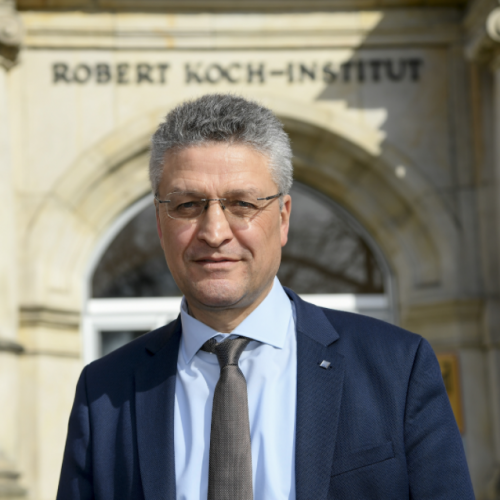
Professor Lothar H. Wieler is the President of the Robert Koch-Institute in Berlin, the German government's leading scientific and biomedical institution for public health. His field of research is zoonoses – diseases that are transmitted between animals and humans.
Indeed, many of the newly emerging pathogens originate from the world of animals. In his research, Wieler is interested in the molecular mechanisms that are responsible for bacterial zoonotic pathogens being able to infect different hosts. His research focuses on antibiotic-resistant bacteria. He is particularly interested in (multiresistant) Escherichia coli and Staphylococcus aureus. Zoonotic pathogens within these bacterial species initially determined using genome-based typing methods are then analyzed in functional experiments. The elucidation of the evolution and adaptation of these bacterial pathogens to different habitats ultimately aims to develop new intervention strategies.
Wieler is the deputy spokesman of the InfectControl 2020 research consortium, which researches trans-sectoral approaches to infection prevention and intervention ("One Health" approach). He is also a member of STAG-IH (Strategic and Technical Advisory Group for Infectious Hazards) of the World Health Organization, a member of the scientific advisory boards of GloPID-R (Global Research Collaboration for Infectious Disease Preparedness) and EACHR (WHO Europe Advisory Committee on Health Research), and a member of the advisory board for the Technology and Methods Platform for Networked Medical Research e.V. (TMF). He is a speaker of the InfectControl2020 consortium IRMRESS (Innovative reduction of multi-resistant infectious agents (MRE) and the establishment of next-generation sequencing-based molecular surveillance) and Neobiom (factors influencing the development of micro-, resistor- and mycobiome in premature infants). Prior to this, Wieler was a spokesperson of the BMBF joint project "FBI-Zoo" (Foodborne Zoonotic Infections of Humans) and the International DFG Research Training Group 1673 (Functional Molecular Infection Epidemiology).
Since 2010 Wieler has been an elected member of the National Academy of Sciences Leopoldina, where he has been working as a senator since 2016.